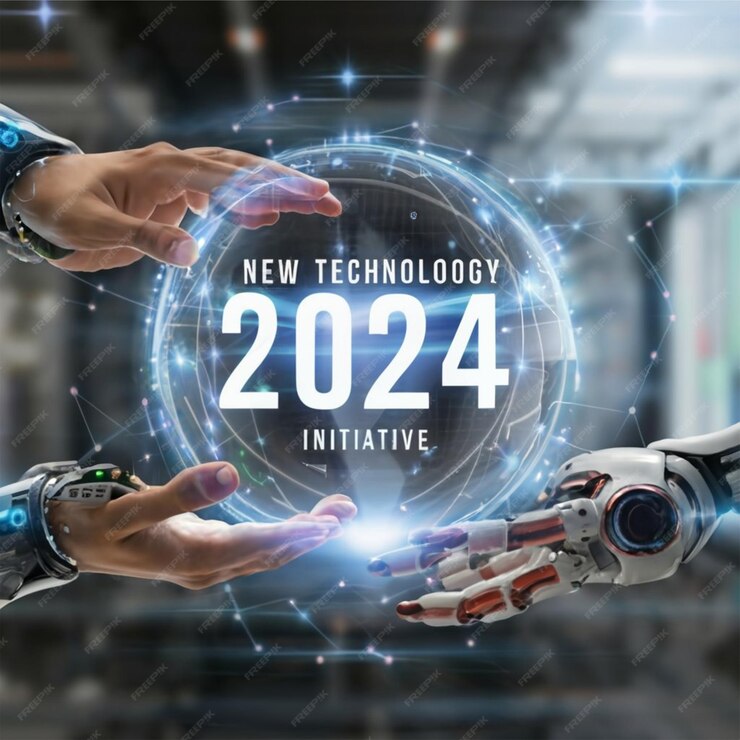In the rapidly evolving realm of technology, few fields have captured the imagination and transformed the world quite like artificial intelligence (AI). From its humble beginnings as a concept in science fiction to its current status as a cornerstone of modern innovation, AI has undergone a remarkable journey of development and advancement. Today, we find ourselves in an era where AI permeates nearly every aspect of our lives, revolutionizing industries, enhancing productivity, and reshaping the way we interact with technology. In this blog post, we’ll embark on a journey through the landscape of modern artificial intelligence, exploring its key components, applications, and implications.
Understanding Modern AI: From Neural Networks to Deep Learning
At the heart of modern AI lies the concept of neural networks, computational models inspired by the structure and function of the human brain. These networks consist of interconnected nodes, or artificial neurons, that process and transmit information. While neural networks have been around for decades, it wasn’t until the advent of deep learning that AI truly began to reach its full potential.
Deep learning, a subset of machine learning, employs neural networks with multiple layers to extract features and patterns from vast amounts of data. This approach has led to groundbreaking advancements in areas such as image recognition, natural language processing, and speech recognition. Deep learning algorithms, fueled by the abundance of data and computational power, have achieved unprecedented levels of accuracy and efficiency, enabling machines to perform tasks once thought to be exclusively human.
Applications Across Industries: From Healthcare to Finance
The widespread adoption of AI has spurred innovation across a multitude of industries, unlocking new opportunities and driving operational efficiency. In healthcare, AI-powered systems analyze medical images, diagnose diseases, and personalize treatment plans with a level of precision and speed unmatched by traditional methods. In finance, AI algorithms process vast datasets to identify patterns and trends, informing investment decisions and risk management strategies.
Moreover, AI has revolutionized the way businesses interact with customers, with chatbots and virtual assistants providing personalized experiences and streamlined support services. In manufacturing, AI-driven automation has optimized production processes, reducing costs and improving product quality. From transportation to agriculture, AI is reshaping the landscape of industry, driving efficiency, and fostering innovation.
Ethical Considerations and Societal Impact
Despite its transformative potential, the widespread adoption of AI raises significant ethical considerations and societal implications. Concerns about privacy, bias, and job displacement have sparked debates about the responsible development and deployment of AI technologies. As AI systems become increasingly autonomous and decision-making processes more opaque, questions about accountability and transparency loom large.
Addressing these challenges requires a multidisciplinary approach, involving collaboration between technologists, policymakers, ethicists, and other stakeholders. Establishing guidelines and regulations to govern the ethical use of AI, ensuring transparency and accountability in algorithmic decision-making, and promoting diversity and inclusivity in AI development are crucial steps toward harnessing the full potential of this transformative technology while mitigating its risks.
The Future of AI: Opportunities and Challenges Ahead
Looking ahead, the future of AI promises both remarkable opportunities and complex challenges. As AI continues to advance, we can expect to see further integration into our daily lives, with smart cities, autonomous vehicles, and personalized healthcare becoming increasingly commonplace. The democratization of AI tools and technologies will empower individuals and organizations to innovate and solve complex problems in ways previously unimaginable.
However, realizing this vision requires addressing a host of technical, ethical, and societal challenges. Ensuring the responsible development and deployment of AI, mitigating biases and ensuring fairness in algorithmic decision-making, and fostering collaboration and dialogue across disciplines will be essential to navigating the complexities of the AI landscape.
Conclusion
In conclusion, modern artificial intelligence represents a transformative force that is reshaping our world in profound ways. From its foundational principles in neural networks to its diverse applications across industries, AI has become an indispensable tool for driving innovation and addressing complex challenges. As we continue to explore the frontiers of AI technology, it is imperative that we do so with a keen awareness of its ethical implications and societal impact, striving to harness its full potential for the benefit of all.


